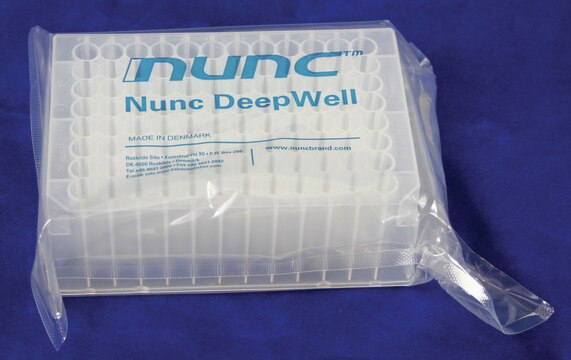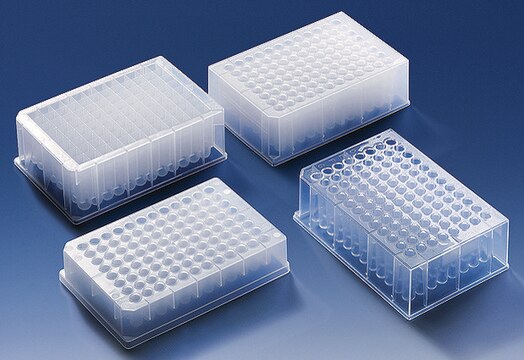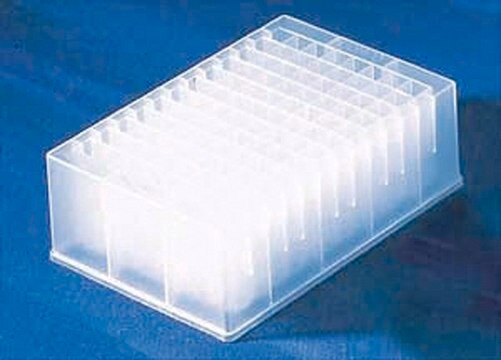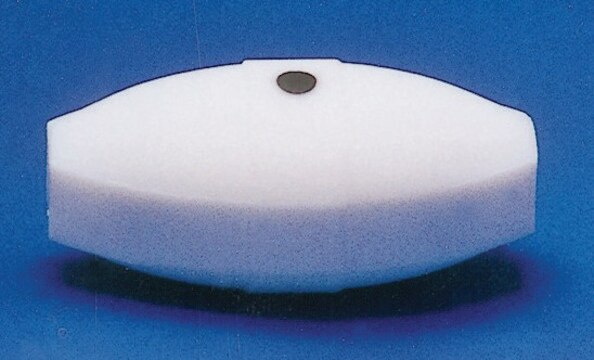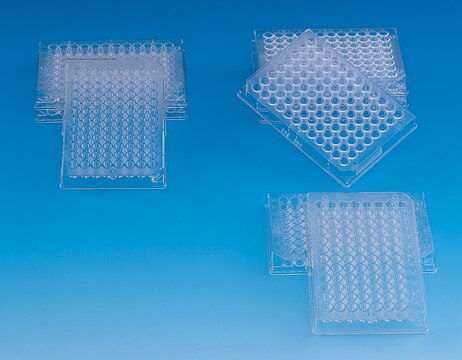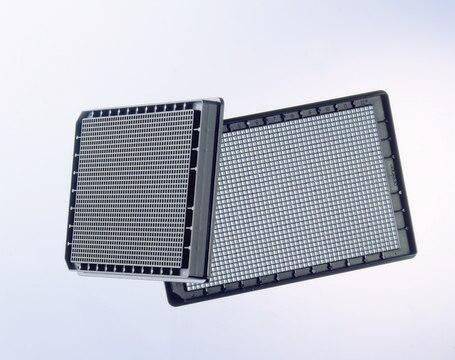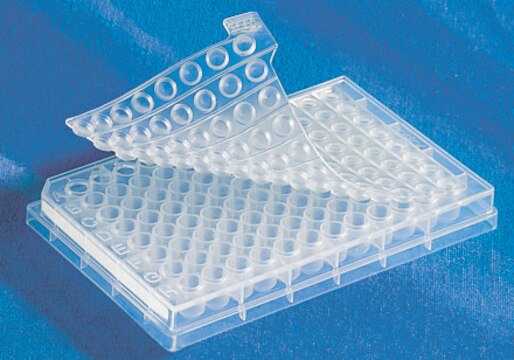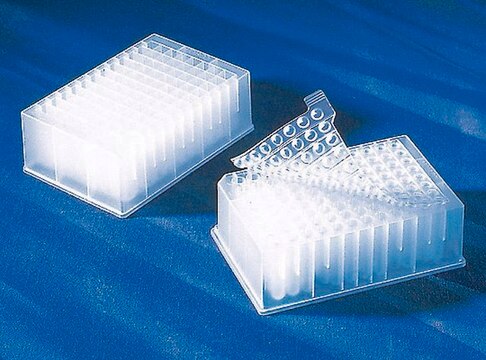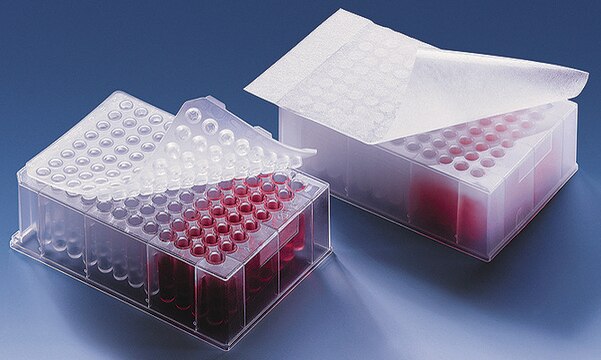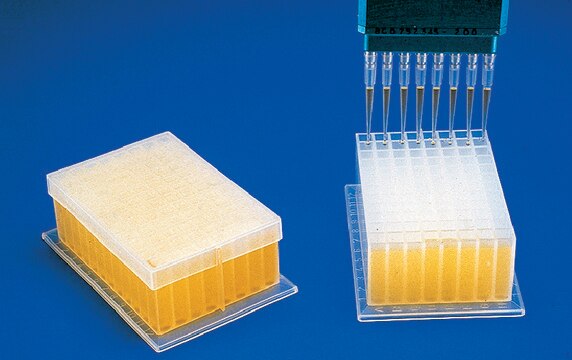Z717266
Nunc® 96 DeepWell™ plate, non-treated
maximum volume 2 mL, non-sterile, round bottom natural polypropylene wells
Synonym(s):
96 deepwell culture plate, 96 deepwell plate
About This Item
Recommended Products
material
natural polypropylene
polypropylene
round bottom natural polypropylene wells
sterility
non-sterile
feature
lid: no
packaging
pack of 5 ea
manufacturer/tradename
Nunc 278752
maximum volume
2 mL
plate L × W
128 mm × 86 mm
size
96 wells , deep wells
well maximum volume
2 μm
well volume
2 mL
working volume
1.9 mL
color
natural
suitability
suitable for (sample collection, storage, combinatorial chemistry and library applications)
binding type
non-treated surface
Looking for similar products? Visit Product Comparison Guide
Related Categories
General description
- Unique low design with shared well technology for increased well volume
- 1.3 and 2.0 mL volume capacity
- Optimum storage capacity and improved mixing
- Round well shape reduces liquid retention
- Well cap available for safe storage – minimal protrusion into each well
- Ideal for sample collection, storage, combinatorial chemistry and library applications
- Resistant to most chemicals, solvents and alcohols used in combinatorial chemistry
- Widely used for bacterial and yeast growth
- Easy-to-use with automatic sample handling instruments
- Alpha-numeric grid for quick sample identification
- Ideal for sample collection, storage, and combinatorial chemistry library applications
- Sealable with well caps and sealing tape
- Ideal as collection plates for Nunc Filter Plates
Legal Information
Certificates of Analysis (COA)
Search for Certificates of Analysis (COA) by entering the products Lot/Batch Number. Lot and Batch Numbers can be found on a product’s label following the words ‘Lot’ or ‘Batch’.
Already Own This Product?
Find documentation for the products that you have recently purchased in the Document Library.
Customers Also Viewed
Articles
Novel sample prep technique coupled with the unique selectivity of the Ascentis Express F5 column enables a fast and simplified bioanalytical method for associated vitamin D metabolites.
Using HybridSPE-Phospholipid, Ascentis Express, and Other LC-MS Workflow Components
Protocols
The conversion of clinical methods to LC/MS/MS offers advantages; however, is accompanied by a few limitations, notably interference effects from the endogenous sample matrix.
Our team of scientists has experience in all areas of research including Life Science, Material Science, Chemical Synthesis, Chromatography, Analytical and many others.
Contact Technical Service